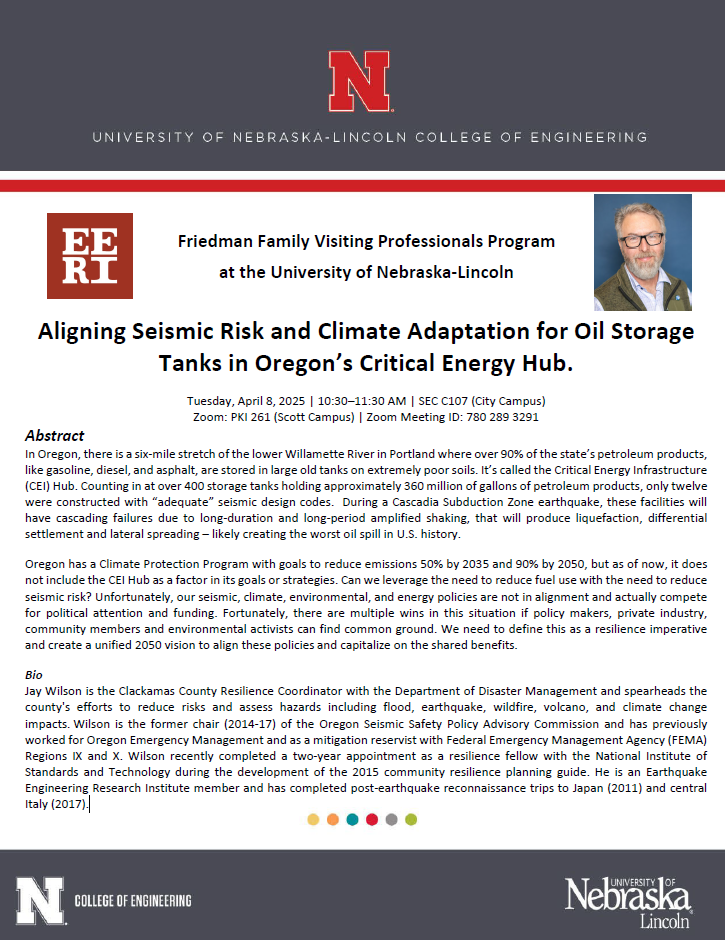
Speaker: Jay Wilson
When: Tuesday, April 8th, 10:30am-1:30am
Where: SEC C107 (Lincoln), PKI 261 (Omaha)
Zoom Meeting ID: 780 289 3291
Title: Aligning Seismic Risk and Climate Adaptation for Oil Storage
Tanks in Oregon’s Critical Energy Hub.
Abstract: In Oregon, there is a six-mile stretch of the lower Willamette River in Portland where over 90% of the state’s petroleum products, like gasoline, diesel, and asphalt, are stored in large old tanks on extremely poor soils. It’s called the Critical Energy Infrastructure (CEI) Hub. Counting in at over 400 storage tanks holding approximately 360 million of gallons of petroleum products, only twelve were constructed with “adequate” seismic design codes. During a Cascadia Subduction Zone earthquake, these facilities will have cascading failures due to long duration and long-period amplified shaking, that will produce liquefaction, differential settlement and lateral spreading – likely creating the worst oil spill in U.S. history.
Oregon has a Climate Protection Program with goals to reduce
emissions 50% by 2035 and 90% by 2050, but as of now, it does
not include the CEI Hub as a factor in its goals or strategies. Can
we leverage the need to reduce fuel use with the need to reduce
seismic risk? Unfortunately, our seismic, climate, environmental,
and energy policies are not in alignment and actually compete
for political attention and funding. Fortunately, there are multiple
wins in this situation if policy makers, private industry,
community members and environmental activists can find
common ground. We need to define this as a resilience imperative
and create a unified 2050 vision to align these policies and
capitalize on the shared benefits.
Speaker Bio: Jay Wilson is the Clackamas County Resilience Coordinator with the Department of Disaster Management and spearheads the county's efforts to reduce risks and assess hazards including flood, earthquake, wildfire, volcano, and climate change impacts. Wilson is the former chair (2014-17) of the Oregon Seismic Safety Policy Advisory Commission and has previously worked for Oregon Emergency Management and as a mitigation reservist with Federal Emergency Management Agency (FEMA) Regions IX and X. Wilson recently completed a two-year appointment as a resilience fellow with the National Institute of Standards and Technology during the development of the 2015 community resilience planning guide. He is an Earthquake Engineering Research Institute member and has completed post-earthquake reconnaissance trips to Japan (2011) and central Italy (2017).